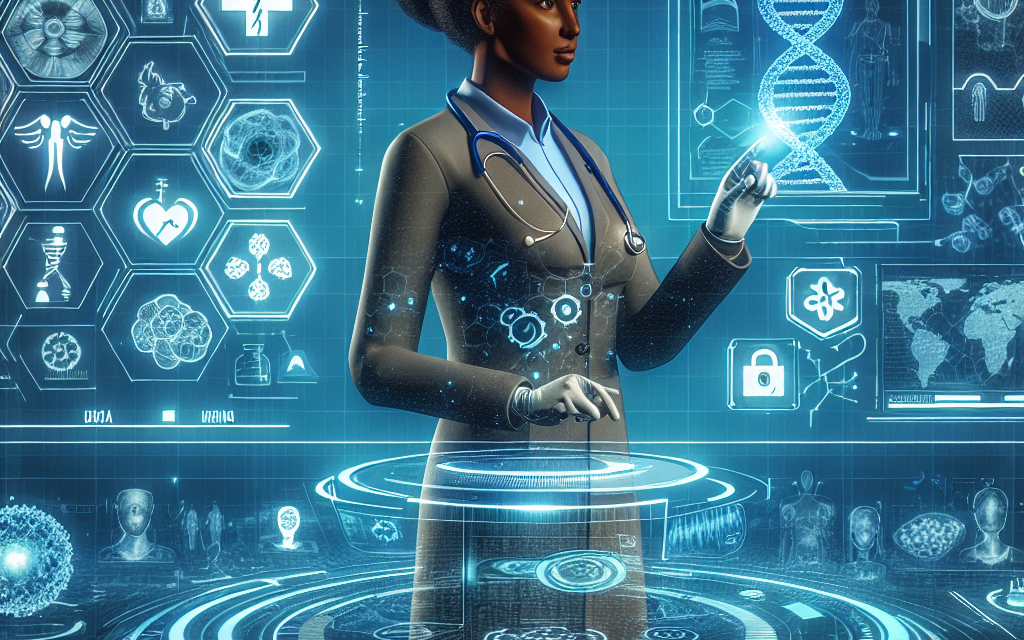The Emerging Role of Chief AI Officer in Healthcare: A Unique Blend of Skills Required

The healthcare industry is undergoing a transformative shift, driven by the rapid advancement of artificial intelligence (AI) technologies. As AI becomes increasingly integrated into healthcare systems, the need for specialized leadership has emerged, giving rise to the role of the Chief AI Officer (CAIO). This article explores the unique blend of skills required for a CAIO in healthcare, examining the responsibilities, challenges, and opportunities associated with this pivotal position.
The Evolution of AI in Healthcare
Artificial intelligence has been making significant inroads into healthcare, revolutionizing how medical professionals diagnose, treat, and manage diseases. From predictive analytics to personalized medicine, AI is reshaping the landscape of healthcare delivery. The evolution of AI in healthcare can be traced through several key developments:
- Advancements in machine learning algorithms that enable more accurate predictions and diagnostics.
- The integration of AI with electronic health records (EHRs) to streamline patient data management.
- The use of natural language processing (NLP) to analyze clinical notes and improve patient care.
- AI-driven imaging technologies that enhance the accuracy of radiological assessments.
- Robotic process automation (RPA) to optimize administrative tasks and reduce operational costs.
These advancements have paved the way for the emergence of the Chief AI Officer, a role that requires a deep understanding of both AI technologies and the healthcare ecosystem.
The Role of the Chief AI Officer
The Chief AI Officer is responsible for overseeing the implementation and integration of AI technologies within a healthcare organization. This role involves a wide range of responsibilities, including:
- Developing and executing an AI strategy that aligns with the organization’s goals and objectives.
- Collaborating with cross-functional teams to identify opportunities for AI-driven innovation.
- Ensuring compliance with regulatory standards and ethical guidelines related to AI in healthcare.
- Managing data governance and ensuring the security and privacy of patient information.
- Leading AI research and development initiatives to drive continuous improvement.
The CAIO must possess a unique blend of skills, combining technical expertise with strategic vision and leadership capabilities. This role requires a deep understanding of AI technologies, as well as the ability to navigate the complex regulatory landscape of the healthcare industry.
Technical Expertise: A Foundation for Success
At the core of the Chief AI Officer’s role is a strong foundation in technical expertise. This includes a comprehensive understanding of AI technologies, such as machine learning, deep learning, and natural language processing. The CAIO must be able to evaluate and select the most appropriate AI tools and platforms for the organization’s needs.
In addition to technical knowledge, the CAIO must possess strong analytical skills to interpret complex data sets and derive actionable insights. This requires proficiency in data science and statistical analysis, as well as experience with data visualization tools.
Moreover, the CAIO must stay abreast of the latest advancements in AI research and development. This involves continuous learning and professional development to ensure that the organization remains at the forefront of AI innovation.
Strategic Vision: Aligning AI with Organizational Goals
While technical expertise is essential, the Chief AI Officer must also possess a strategic vision to effectively integrate AI into the organization’s operations. This involves developing a comprehensive AI strategy that aligns with the organization’s goals and objectives.
The CAIO must work closely with senior leadership to identify key areas where AI can drive value and improve patient outcomes. This requires a deep understanding of the healthcare industry and the ability to anticipate future trends and challenges.
Furthermore, the CAIO must be able to communicate the value of AI to stakeholders at all levels of the organization. This involves articulating the benefits of AI-driven initiatives and securing buy-in from key decision-makers.
Leadership and Collaboration: Building a Culture of Innovation
The Chief AI Officer plays a critical role in fostering a culture of innovation within the organization. This requires strong leadership and collaboration skills to build and lead cross-functional teams that drive AI initiatives.
The CAIO must be able to inspire and motivate team members, encouraging them to think creatively and embrace new technologies. This involves creating an environment that supports experimentation and risk-taking, while also ensuring accountability and performance.
Collaboration is also key to the success of AI initiatives. The CAIO must work closely with other departments, such as IT, clinical operations, and research, to ensure seamless integration of AI technologies. This requires effective communication and negotiation skills to align diverse stakeholders around a common vision.
Regulatory Compliance and Ethical Considerations
As AI becomes more prevalent in healthcare, regulatory compliance and ethical considerations are of paramount importance. The Chief AI Officer must ensure that all AI initiatives comply with relevant regulations and standards, such as HIPAA and GDPR.
This involves implementing robust data governance frameworks to protect patient privacy and ensure data security. The CAIO must also address ethical considerations related to AI, such as bias and transparency, to build trust with patients and stakeholders.
Moreover, the CAIO must stay informed about evolving regulatory requirements and industry best practices. This requires ongoing engagement with regulatory bodies and participation in industry forums and working groups.
Case Studies: Successful Implementation of AI in Healthcare
To illustrate the impact of AI in healthcare, it is helpful to examine case studies of successful implementation. These examples highlight the potential of AI to transform healthcare delivery and improve patient outcomes.
Case Study 1: Predictive Analytics for Early Disease Detection
One notable example of AI in healthcare is the use of predictive analytics for early disease detection. A leading healthcare provider implemented an AI-driven platform that analyzes patient data to identify individuals at risk of developing chronic conditions, such as diabetes and heart disease.
The platform uses machine learning algorithms to analyze a wide range of data, including medical history, lifestyle factors, and genetic information. By identifying high-risk patients early, the healthcare provider can implement targeted interventions to prevent disease progression and improve patient outcomes.
This case study demonstrates the potential of AI to enhance preventive care and reduce healthcare costs by enabling early intervention and personalized treatment plans.
Case Study 2: AI-Driven Imaging for Improved Diagnostics
Another compelling example is the use of AI-driven imaging technologies to improve diagnostic accuracy. A major hospital implemented an AI-powered imaging platform that assists radiologists in interpreting medical images, such as X-rays and MRIs.
The platform uses deep learning algorithms to analyze images and identify abnormalities with high precision. This not only improves diagnostic accuracy but also reduces the time required for image interpretation, allowing radiologists to focus on more complex cases.
The implementation of AI-driven imaging has led to significant improvements in diagnostic accuracy and efficiency, ultimately enhancing patient care and outcomes.
Conclusion: The Future of the Chief AI Officer in Healthcare
The role of the Chief AI Officer is becoming increasingly vital as healthcare organizations seek to harness the power of AI to drive innovation and improve patient outcomes. This position requires a unique blend of technical expertise, strategic vision, leadership, and regulatory acumen.
As AI continues to evolve, the CAIO will play a critical role in shaping the future of healthcare delivery. By leveraging AI technologies, healthcare organizations can enhance preventive care, improve diagnostic accuracy, and optimize operational efficiency.
In conclusion, the Chief AI Officer is poised to become a key driver of transformation in the healthcare industry, leading the way toward a more efficient, effective, and patient-centered healthcare system.





